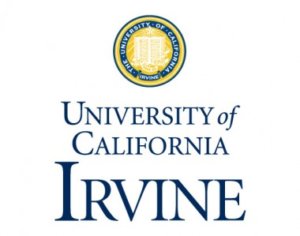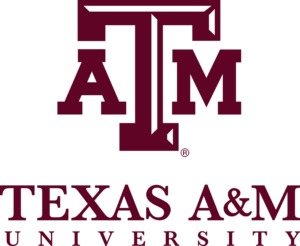In this ranking of the most affordable Bachelor’s degrees in Urban Planning and Development for 2020, we will explore the following degrees:
- B.S. in Community and Regional Planning
- B.S. in Community and Environmental Planning
- B.S. in Urban and Regional Planning
- B.S. in Urban and Regional Development
- Bachelor of Urban and Environmental Planning
- B.A. in Urban Policy and Planning
- Bachelor’s in Community, Environment, and Planning
- Ba.S. in Geography Urban and Regional Planning
- B.A. in Urban Studies
- B.S. in Urban and Regional Planning
- Bachelor’s in Urban and Community Studies
- B.A. in Urban Planning and Design
- B.A. in Urban Studies and Planning
- B.S. in Urban and Regional Studies
If you’re interested in how cities work–and how all the historical and social aspects of them affect today’s modern life–you might be interested in a low-cost Bachelor’s degree in Urban Planning and Development. This degree won’t just stop with learning about cities. You’ll also be able to provide solutions to current issues, design new innovated spaces, improve transportation, and address environmental issues. In short? You’ll be making lives easier and better. In this ranking, we share the best and most affordable options for a low-cost undergraduate degree in urban planning.
Rating and Ranking Methodology
To develop this ranking of the top affordable Bachelor’s in Urban Planning and Development programs, our editors searched for schools that offered cheap undergraduate programs in Urban Planning. To rate and rank these programs, we applied the methodology below, using information from Google, the National Center for Educational Statistics (NCES), Payscale.com, the U.S. Bureau of Labor and Statistics, and each program’s website. In cases of a tie, the more affordable school pulled the higher rank. If the information didn’t fit within the parameters, zero points were awarded for that category.
Tuition
- Net Price Below $10,000: 4 points
- Net Price Below $15,000: 3 points
- Net Price Below $20,000: 2 points
- Net Price Below $25,000: 1 point
Student to Faculty Ratio
- Less than 20:1: 1 point
- Less than 15: 1: 2 points
- Less than 10: 1: 3 points
Return on Investment (ROI) According to Payscale.com
- Top 500: 1 point
- Top 300: 2 points
- Top 150: 3 points
Student Support Network (faculty mentors/advisors, writing/technology support, etc.)— 1 point per item
Concentrations/Specializations – 1 point per item
Accreditation (School-Wide and Program-Specific) – 1 point per item
Campus Diversity Support Network – 1 point per item
“Wow” Factor – 1 point (anything that would mark a program as unique. Special qualities that make a program “stand out from the crowd”)
#25 Michigan State University
East Lansing, Michigan
B.S. in Urban and Regional Planning
Website
Student-Faculty Ratio: 16 to 1
Undergraduate Enrollment: 39,423
Standardized Test Score Requirements: Scores are required. The middle 50% of freshman’s scores are: Composite ACT: 23-29 | Total SAT: 1,130-1,300.
Points: 12

Michigan State University’s affordable urban planning and development degree offering is a Bachelor of Science in Urban and Regional Planning. This program is designed to help graduates acquire entry-level planning positions in fields like real estate, consulting, environmental planning, and community development organizations. Important coursework and areas of study include the following:
- Introduction to Urban and Regional Planning.
- Methods for Investigation of Urban Systems.
- Land Use Planning.
- Planning Law and Ethics.
- Geographic Information Systems and Design Tools for Planning.
- Introduction to Environmental Planning.
- Local Economic Planning
However, this program isn’t just classes and curriculum; you’ll also participate in community projects and listen to lectures to help build a well-rounded education based on theory and real-world application. You’ll even end your studies with a practicum or ‘capstone’ course that will serve as a traditional internship. Students will get to be involved in real planning practices and truly gain hands-on experience in their field. MSU’s planning program has been accredited by the Planning Accreditation Board since 1987, making this a program you trust.
Net Price Tuition: $16,227
#24 Minnesota State University Mankato
Mankato, Minnesota
B.S. in Urban and Regional Studies
Website
Student-Faculty Ratio: 22 to 1
Undergraduate Enrollment: 30,385
Standardized Test Score Requirements: ACT test scores required
Points: 12

Minnesota State University, located in Mankato, Minnesota, offers a low-cost Bachelor’s in Urban and Regional Studies. You will take coursework like The City: Design and Architecture, Community Leadership, Sustainable Communities, and Urban Analysis. Students will also be able to participate in real-world experiences like internships and study abroad opportunities to create a hands-on education. Two graduate-level degrees are available in Urban Planning and Urban and Regional Studies as well. Graduates of the program will be ready for careers in fields like city management, urban design, real estate development, non-profit management. And if you’re worried about how you will pay for your degree, check out one of MSU’s many scholarship options. Minnesota State University, Mankato has been accredited by the Higher Learning Commission (HLC).
Net Price Tuition: $14,519
#23 University of North Texas
Denton, Texas
B.A. in Urban Policy and Planning
Website
Student-Faculty Ratio: 25 to 1
Undergraduate Enrollment: 31,375
Standardized Test Score Requirements: From the school’s website: “All freshman applicants to UNT must submit SAT or ACT scores. The writing portion of the exam is not required.”
Points: 12

At the University of North Texas, you can earn a cheap degree in urban planning and get your B.A. in Urban Policy and Planning. In fact, the program begins for the first time in the fall of 2019, so you can be a part of building an incredible program. Options abound at UNT as well. You’ll be able to choose a fully on-campus program or if you need online classes or a blended format, you can do that too! In addition, you can pursue your degree at an accelerated pace, graduating in just 3 years. The curriculum will cover a multitude of topics like community mapping, GIS, building design, zoning, and more. Specific classes include:
- Urban Planning Studio
- Financial Aspects of Government
- Creating Innovative Cities
- Negotiations & Dispute Resolution
- Community Resource Mapping & Collaborative Planning
- Proposal Writing & Grants Administration
Graduates will be ready to pursue jobs in fields like city and regional government, state and federal government, private development, housing, transit, and nonprofits. The University of North Texas is accredited by the Southern Association of Colleges and Schools Commission on Colleges to award baccalaureate, master’s and doctorate degrees.
Net Price Tuition: $12,600
#22 University of New Hampshire
Durham, New Hampshire
B.S. in Community and Environmental Planning
Website
Student-Faculty Ratio: 19 to 1
Undergraduate Enrollment: 12,815
Standardized Test Score Requirements: Standardized test scores are not required.
Points: 13

The University of New Hampshire offers a cheap degree in urban planning and development through its 128-credit B.S. in Community and Environmental Planning. Because this field thrives off of learning-by-doing, this degree program places an emphasis on hands-on education. You won’t just be learning in the classroom. Instead, you’ll be a part of an interactive internship program that will work with today’s leaders of Boston. Course work includes classes like Green Real Estate, Community Economics, Social Impact Assessment, Systems Thinking for Sustainable Solutions, and Resolving Environmental Conflicts. Extra opportunities include a planning club, an honors society, and a hands-on immersion called Ecoquest. The University of New Hampshire is formally accredited by the New England Association of Schools and Colleges (NEASC).
Net Price Tuition: $22,694
#21 University of California Berkeley
Berkeley, California
Bachelor of Arts in Urban Studies
Website
Student-Faculty Ratio: 20 to 1
Undergraduate Enrollment: 30,853
Standardized Test Score Requirements: ACT or SAT scores are required, but no minimum score is discussed
Points: 13

Through the Department of City and Regional Planning, the University of California–Berkeley offers an affordable Bachelor’s in Urban Studies. The program will study the history of urban globalization, seek to understand urban environments, examine urban planning and design, and learn to create a more efficient urban future. The goal of the program is to produce global leaders, and graduates can be ready to take on careers like urban planning, law, nonprofit management, and public policy. The curriculum will address areas of urban planning like:
- Global Urbanization, Urbanism, Urban Political Economies
- Analytical Methods, Theoretical Frameworks
- Practices of Urban Planning
- Better Urban Futures
Sample topics in the curriculum include urban development, land-use planning, housing and community development, transportation and infrastructure systems, sustainable development, historic preservation, geographic information systems, and physical planning and urban design. A related minor in City Planning is also available. For those students desiring to continue into grad school, a Master of City Planning (and even a PhD in City Planning) is a viable option. UC Berkeley is accredited by the Western Association of Schools & Colleges (WASC).
Net Price Tuition: $17,862
#20 University of Arizona
Tucson, Arizona
B.S. in Urban and Regional Development
Website
Student-Faculty Ratio: 15 to 1
Undergraduate Enrollment: 34,153
Standardized Test Score Requirements: Official SAT/ACT scores are optional for admissions consideration.
Points: 13

Through the College of Social and Behavioral Sciences, the University of Arizona offers a low-cost B.S. in Urban and Regional Development. This hands-on program will utilize fieldwork and remote-sensing to provide a curriculum that will prepare you for your future career. You will also examine issues of regional growth, analyze important data, study relevant topics like sustainable development. In this affordable urban and regional planning degree, you’ll take coursework like:
- Introduction to Sustainable Development
- Population Geography
- Introduction to Remote Sensing
- Fire Mapping
- The American City
This degree program is offered through the school’s geography department, so your study will have a solid foundation in the fundamentals of geography. Once you graduate, you can pursue careers in regional planning, real estate, city managing, GIS, or sustainability projects. The University of Arizona is accredited by the Higher Learning Commission.
Net Price Tuition: $15,594
#19 University of Missouri
Kansas City, Missouri
B.A. in Urban Planning and Design
Website
Student-Faculty Ratio: 15 to 1
Undergraduate Enrollment: 11,319
Standardized Test Score Requirements: UM considers your highest composite score of a single test.
Points: 13

Through the College of Arts and Sciences, the University of Missouri offers a low-cost degree in urban planning and development. This B.A in Urban Planning and Design can be completed in four years and includes a solid liberal arts/humanities education. There is a foreign language component to this degree. Among the program’s 120 credits will be major coursework like:
- Civic & Community Engagement
- Planning & Design Studio
- Survey of the Design Professions
- Urban Environment Planning & Design
- Planning Law & Practice
Students will end their coursework with an Urban Planning Internship and gain real-world experience before graduating. Note that students must hold a 2.0 GPA to keep in good standing with the program. The University of Missouri is accredited by the Higher Learning Commission.
Net Price Tuition: $14,521
#18 Cleveland State University
Cleveland, Ohio
B.A. in Urban and Regional Studies
Website
Student-Faculty Ratio: 16 to 1
Undergraduate Enrollment: 11,999
Standardized Test Score Requirements: Minimum scores on ACT (16) or SAT (770)
Points: 13

In Cleveland State University’s cheap urban planning and development degree, you will receive a solid liberal arts education. Through the interdisciplinary program, you will examine the foundations of urban studies, including urban geography, urban economic and political systems, and social issues. You can hone in your Urban and Regional Planning skills by choosing that as a specialization track. Or, choose from another focus area like:
- Public Management
- Environmental Policy and Management
- GIS & Applications
- Personally-Designed Track
Related options for a minor include:
- Sustainable Urban Development
- Environmental Studies
- Nonprofit Administration
For students interested in graduate school, CSU offers 3 Bachelor’s + Master’s degree programs that you can complete in just 5 years total. Cleveland State University is accredited by the Higher Learning Commission.
Net Price Tuition: $14,356
#17 Texas State University
San Marcos, Texas
Bachelor of Science in Geography Urban and Regional Planning
Website
Student-Faculty Ratio: 22 to 1
Undergraduate Enrollment: 34,187
Standardized Test Score Requirements: Test scores are required, but no minimum is discussed
Points: 13

The low-cost urban planning and development degree offering at Texas State University is rooted in the field of geography. After graduation, you will receive a B.S. in Geography Urban and Regional Planning. To accompany your degree, you can also choose between a long list of approved minors. Make sure to choose one that both interests you and that will serve you well after graduation. The school recommends the following options: Public Administration, Business Administration, or Construction Science and Management. Among the 120 required credits are major courses like:
- Cities and Urban Design
- Community and Regional Planning
- Maps and Mapmaking
- Field Methods
- Advanced GIS
- River Basin Management
- Parks and Protected Places
- Transportation Systems
For students wanting to continue their education, many graduate-level degrees are available, including Geography Resource and Environmental Studies and GIS. Texas State University is accredited by the Commission on Colleges (COC) of the Southern Association of Colleges and Schools (SACS).
Net Price Tuition: $13,729
#16 Rutgers University Camden
Camden, New Jersey
B.A. in Urban Studies
Website
Student-Faculty Ratio: 15 to 1
Undergraduate Enrollment: 5,776
Standardized Test Score Requirements: Submit SAT/ACT scores directly from testing agency
Points: 13

Rutgers University Camden offers a low-cost B.A. in Urban Studies that will utilize an interdisciplinary curriculum to give you an education you can be proud of. Unlike other programs who have required major courses, you’ll be able to choose from a long list of required courses, including options like:
- Introduction to Urban Studies
- Camden and the Greater Philadelphia Region
- Poverty and the Urban Environment
- Urban and Regional Revitalization
- Power and Decision-making in Urban Communities
- Statistics for Criminal Justice
Next, you’ll get to choose 6 elective courses like Youth Identities and Urban Ecology, Conflict and Change in Society, or The Civil Rights Movement. Students are highly encouraged to participate in a hands-on experience through an internship with various community organizations. Graduates of the program will be able to pursue careers in fields of Non-profit Management, Urban Planning and Design, Economic Development, Neighborhood & Community Development, and more. Rutgers is accredited by the Middle States Commission on Higher Education (MSCHE).
Net Price Tuition: $12,279
#15 University of California
Irvine, California
Bachelor of Arts in Urban Studies
Website
Student-Faculty Ratio: 18 to 1
Undergraduate Enrollment: 29,736
Standardized Test Score Requirements: Official scores are required, but no minimum score is discussed
Points: 14

The University of California Irvine’s cheap urban planning degree will help you accomplish your dreams, whether you want to help produce cleaner air, design better traffic routes, or build more affordable housing. The interdisciplinary program will focus on learning the structure of modern cities and how to develop more sustainable, inclusive futures. In addition, the program will also examine the historical and social aspects that have shaped our cities’ pasts. Coursework includes classes like:
- Urban America
- Cities and Transportation
- Urban Inequality
- Poverty in Developing Countries
- Housing and Urban Development Policy
- Water Resource Policy
- Public Policy and Management
- International Divided Cities
- Latino Metropolis
- Community Health
- Environmental Psychology
A related minor in Civic and Community Engagement is also available. Students in UC Irvine’s urban planning department will have many opportunities to get involved with like-minded peers, including a student club, a research program, and study abroad options. Graduates will be ready to continue into graduate school or to pursue career options in fields of business, law, regional planning, public administration, and more. UC Irvine is fully accredited by the Senior Commission of the Western Association of Schools and Colleges(WSCUC).
Net Price Tuition: $15,014
#14 University of Texas at Austin
Austin, Texas
B.A. in Urban Studies
Website
Student-Faculty Ratio: 18 to 1
Undergraduate Enrollment: 40,804
Standardized Test Score Requirements: Scores from the ACT or the SAT must be sent officially.
Points: 14

The Department of Geography and the Environment at the University of Texas Austin offers a flexible and affordable undergraduate degree in urban studies. The program prides itself on its dedication to a student-directed education by allowing you to choose courses in the major that pertain to your personal goals. After your general education requirements and studying the fundamentals of urban studies, you’ll design your electives curriculum using options from 18 different departments. This will allow you to tailor your education to your career aspirations and interests. During your senior year, you’ll complete an internship as well as a semester-long research project, which will help you showcase a body of work that represents your stint at UT-Austin. When it comes to your GIS coursework, you’ll get to take classes with the backdrop of a state-of-the-art research center. Students can get involved by joining an international honors society in geography or the urban studies society. UT Austin is accredited by the Southern Association of Colleges and Schools Commission on Colleges to award baccalaureate, professional, masters, and doctorate degrees.
Net Price Tuition: $14,156
#13 Worcester State University
Worcester, Massachusetts
Bachelor’s in Urban Studies
Website
Student-Faculty Ratio: 17 to 1
Undergraduate Enrollment: 5,380
Standardized Test Score Requirements: WSU considers the best composite score of a single test.
Points: 16

Worcester State University, located in Massachusetts, offers a cheap Bachelor’s in Urban Studies with a unique set of options for areas of concentration. You’ll be able to take the urban studies and planning classes you love, but really hone in one area of concentration. And since these options are targeted to a very specific focus, you’ll be skilled in an area that not most people are–which could be an asset when looking for jobs! In this affordable urban planning degree, you can choose from the following areas of emphasis:
- Gerontology
- Intergenerational and Community Service
- Public Administration and Planning
- Social Work and Social Policy
Required coursework for the major includes the following classes:
- Introduction to Urban Studies
- American Metropolitan Evolution
- Human Identity and Urban Environment
- Power and Urban Insecurity
- Research Methods in Urban Studies
- Research Seminar in Urban Studies/Capstone
For those students interested in the non-profit sector, WCU also offers a 5 year combined Bachelors and Masters in Urban Studies and Non-Profit Management. In addition, if you have a 3.25 GPA or higher, the GRE requirement is waived. Worcester State University is accredited by the New England Association of Schools and Colleges (NEASC).
Net Price Tuition: $15,458
#12 University of New Orleans
New Orleans, Louisiana
B.S. in Urban Studies and Planning
Website
Student-Faculty Ratio: 19 to 1
Undergraduate Enrollment: 6,588
Standardized Test Score Requirements: ACT (English 18 & Math 19); SAT (Reading 500 & Math 510)
Points: 16

The University of New Orleans offers a cheap Bachelor’s in urban planning and development that will analyze the historical, cultural, social, economic, and environmental factors in the urban studies field. This is an interdisciplinary program that utilizes a holistic approach to your education. You’ll not only get a solid foundation in the social sciences, but you’ll also get coursework and training in professional fields like technical writing, quantitative analysis, and public speaking. Combine those skills with the urban environment education, and you’ll be ready to take on the urban planning world. In addition, two areas of concentration are available: Transportation and Urban Planning. Students can also pursue the honors program or one of several graduate-level degrees in Urban Studies. The University of New Orleans is accredited by the Southern Association of Colleges and Schools Commission on Colleges to award baccalaureate, masters, and doctoral degrees.
Net Price Tuition: $9,859
#11 CUNY Queens College
Queens, New York
Bachelor’s in Urban Studies
Website
Student-Faculty Ratio: 15 to 1
Undergraduate Enrollment: 16,620
Standardized Test Score Requirements: SAT score of 1130 in critical reading and math; ACT score of 22 or higher in English and math
Points: 16

At Queens College, you can earn your low-cost Bachelor’s in Urban Studies without breaking the bank. QC offers the lowest tuition out of all the schools on this list, coming in at under $5,0o0 net price tuition! You won’t have to feel guilty about this investment; plus you’ll be in one of the best cities in the US to examine the current issues in urban planning and development. Even your curriculum will utilize the surrounding NYC environment as you build your skillset. Your studies will cover a wide range of interesting and pressing issues faced in modern urban life, including diversity, poverty, sustainability, segregation, environmental change, underemployment, gentrification, homelessness, community planning, health services, and urban politics. Required major courses include:
- Urban Poverty and Affluence
- Urban Politics
- Urban Research Methods
- Making Public Policy
- Contemporary Urban Theory
In addition, students will take a service-learning course, which consists of weekly seminars and community outreach with one of the school’s partner organizations. A Master of Arts in Urban Affairs is also available. Queens College is accredited by the Middle States Commission on Higher Education (MSCHE).
Net Price Tuition: $4,776
#10 California State University Northridge
Northridge, California
Bachelor’s in Urban Studies and Planning
Website
Student-Faculty Ratio: 26 to 1
Undergraduate Enrollment: 35,051
Standardized Test Score Requirements: You must submit scores, but there is no minimum requirement
Points: 16

California State University Northridge’s affordable degree in urban planning and development exists to provide solutions to the modern complexities of urban life. This Bachelor’s in Urban Studies and Planning provides a solid education in the social sciences and will prepare you for either graduate study or the workforce. After you complete the general education requirements, you will get to choose from one of 4 areas of concentration. Three of those focus areas are urban and regional planning; housing, community, and economic development; and environmental planning and sustainability. The fourth option allows you to create your own specialization with the help of an advisor. The program also places a high value on overseas study and believes strongly in the impact of an international education. Once you graduate, you’ll be ready for careers in urban planning, community development, environmental analysis, public administration, and resource management. CSU Northridge is accredited by the WASC Senior College and University Commission (WSCUC).
Net Price Tuition: $8,549
#9 San Francisco State University
San Francisco, California
B.A. in Urban Studies and Planning
Website
Student-Faculty Ratio: 23 to 1
Undergraduate Enrollment: 26,531
Standardized Test Score Requirements: Your test score requirements will vary depending on your high school GPA.
Points: 17

Through San Francisco State University’s affordable B.A. in Urban Studies and Planning, you’ll get a solid liberal arts education thought the social sciences. The curriculum will focus on problem-solving techniques and specific training in research methods, all of which ends in a hands-on internship experience. In this program, you’ll take classes like Land-Use Planning, Geography of Global Transportation, Alternative Urban Futures, Data Analysis, Environmental Justice: Race, Poverty, and the Environment, City in a Global Society, and Housing Policy and Planning. Students are also required to take 12-credits of complementary coursework that can also be used as a minor. Graduates can pursue entry-level jobs in the planning field or continue on to graduate school to earn a Master’s or even a PhD. San Francisco State University is regionally accredited by the Western Association of Schools and Colleges, Senior College and University Commission.
Net Price Tuition: $14,964
#8 University of Virginia
Charlottesville, Virginia
Bachelor of Urban and Environmental Planning
Website
Student-Faculty Ratio: 15 to 1
Undergraduate Enrollment: 16,777
Standardized Test Score Requirements: Students must self-report scores, and the school will consider the best composite score of each test.
Points: 18

The low-cost urban planning and development offering at the University of Virginia is a Bachelor of Urban and Environmental Planning. This degree will merge a solid liberal arts education with interdisciplinary study to provide you with a degree you can be proud of. The coursework will comprise of the following areas of study: community design and development, transportation strategies, data analysis and visualization, land use and environmental policy, fieldwork, and social planning. A few specific courses include:
- Principles of Economics
- Digital Visualization for Planners
- Law, Land and the Environment
- Planning Methods
- Planning in Government
- Neighborhoods, Community, and Regions
In addition, there is a corresponding graduate degree students can pursue as well. And what makes that program stand out is that students with a 3.3 GPA or higher are automatically accepted–no tedious standardized tests or applications! UV’s undergraduate degree in urban planning is accredited by the Planning Accreditation Board, sponsored jointly by the American Institute of Certified Planners and the Association of Collegiate Schools of Planning.
Net Price Tuition: $17,845
#7 Iowa State University
Ames, Iowa
Bachelor of Science in Community and Regional Planning
Website
Student-Faculty Ratio: 19 to 1
Undergraduate Enrollment: 29,621
Standardized Test Score Requirements: Your composite SAT/ACT score will be weighted and used as part of your Regent Admission Index (RAI) score, which will determine your admission status.
Points: 18

Through Iowa State University’s College of Design, you can earn an affordable degree in urban planning that results in a B.S. in Community and Regional Planning. What’s really enticing about this program is its large number of concentrations that will help you hone in on your specific skillset and career goals. Options for focus areas include:
- community development and social policy
- ecological and environmental planning
- regional and international planning
- physical planning and urban design
- transportation and land use
You’ll not only study theories of planning in the classroom, but you’ll also get a studio-based education that will add in real-world experiences outside of the classroom. You can even be a part of travel classes that will examine planning issues in some of the U.S’s largest cities, like NYC and LA. International options are available, too. In addition, you can complete an internship for credit to enhance your hands-on curriculum. ISU’s professional BSCRP degree is accredited by the Planning Accreditation Board of the American Institute of Certified Planners and the Association of Collegiate Schools of Planning.
Net Price Tuition: $14,643
#6 University of California San Diego
La Jolla, California
B.A. in Urban Studies and Planning (USP)
Website
Student-Faculty Ratio: 19 to 1
Undergraduate Enrollment: 30,285
Standardized Test Score Requirements: You must submit scores, but no minimum is discussed
Points: 18

University of California’s San Diego campus offers an affordable degree in urban planning and development. In the upper-division of the B.A. in Urban Studies and Planning, the coursework is broken down into the following sections: (2) Foundation Courses, (1) Technical Elective, (1) Research Methods Course, (2) Senior Sequence Courses, and (6) Upper-Division Elective Courses. Sample classes include:
- Site Analysis
- Research Methods: Studying Racial and Ethnic Communities
- Sustainable Planning
- Medicine, Race, and the Global Politics of Inequality
- Regional Governance and Planning Reconsidered
In addition, this program offers a long list of focus areas that will enhance your degree. Options include:
- Urban/Regional Policy and Planning
- Urban Design/Built Environment
- Health, Social Services & Education
- Urban Diversity
- Cities in Historical and Comparative Perspectives
An honors thesis option is available for advanced students. UC San Diego (UCSD) is accredited by WASC Senior College and University Commission (WSCUC).
Net Price Tuition: $13,452
#5 University of Washington-Seattle Campus
Seattle, Washington
Bachelor’s in Community, Environment, and Planning
Website
Student-Faculty Ratio: 19 to 1
Undergraduate Enrollment: 32,099
Standardized Test Score Requirements: The school admits students through a holistic review process, and standardized test scores are a part of that criteria.
Points: 18

The affordable urban planning and development degree offering at the University of Washington Seattle campus will result in a Bachelor’s degree in Community, Environment, and Planning. It is important to note that this is a 2-year program, so students must have already completed their general education requirements before being admitted. Students will create an individual study plan, to make their journey to a degree personalized and pointed towards their respective career goals. Within the 77 major credits, you’ll take classes like Community and Environment, Ethics and Identity, Social Structures and Processes, The Idea of Community, and Planning in Context. To commemorate the educational experience at UW and to showcase students’ work and talents, seniors will create an e-portfolio. And because the CEP program at UW believes in the power of leadership, students will participate in two leadership retreats throughout the year, as a way to support personal growth. The University of Washington is accredited by the Northwest Commission on Colleges and Universities (NWCCU).
Net Price Tuition: $9,765
#4 Texas A & M
College Station, Texas
B.S. in Urban and Regional Planning
Website
Student-Faculty Ratio: 20 to 1
Undergraduate Enrollment: 53,743
Standardized Test Score Requirements: Scores are required, but no minimum score is discussed
Points: 19

Texas A & M offers an affordable Bachelor’s degree in urban planning and development resulting in a Bachelor of Science with two options for specialization: Policy or Urban Design. This program, which has been around for over 12 years, is designed to help students learn how to provide a solution for the growth and development of modern cities. A major portion of this multidisciplinary curriculum will be centered on learning how to problem-solve. But, it won’t just be coursework. Knowledge will extend beyond the classroom and include both internships and participation in service-learning opportunities. For students who know they want to continue on to graduate school, Texas A & M offers two unique programs that allow students to get both a Bachelor’s and a Master’s degree in only 5 years. Programs include a B.S. in Urban and Regional Planning with a Master of Land and Property Development or a B.S. in Urban and Regional Planning with a Masters in Urban Planning. Texas A&M University is accredited by the Southern Association of Colleges and Schools Commission on Colleges.
Net Price Tuition: $19,118
#3 Stanford University
Stanford, California
B.A. in Urban Studies
Website
Student-Faculty Ratio: 5 to 1
Undergraduate Enrollment: 7,087
Standardized Test Score Requirements: Students are expected to submit scores for the ACT or SAT, but no minimum test score is required.
Points: 19

Stanford University offers a low-cost Bachelor’s degree in urban planning and development. You’ll earn this liberal arts B.A. degree by way of an impressive interdisciplinary program. And when it comes to flexibility, SU’s program gives you many options to specialize your studies. In fact, you can choose from the following areas of concentration:
- Cities in Comparative and Historical Perspective
- Urban Education
- Urban Society and Social Change
- Urban Sustainability
In addition, one last focus area is available, and it’s a self-made option. With this track, you’ll be able to design a program that fits your personal interests and career goals. All students will have a service-learning component of their curriculum. You fulfill it by taking certain classes or by interning with an approved agency. In addition, all students will complete a senior project. An honors program is also available. Stanford University’s program will give you the prestige and reputation that you know, but at a price that won’t break the bank. Stanford is accredited by the Accrediting Commission for Senior Colleges and Universities of the Western Association of Schools and Colleges (WASC).
Net Price Tuition: $17,271
#2 University of Connecticut
Storrs, Connecticut
Bachelor’s in Urban and Community Studies
Website
Student-Faculty Ratio: 16 to 1
Undergraduate Enrollment: 19,133
Standardized Test Score Requirements: Scores are required unless you are 21 years or older or already have 24 college credits.
Points: 20

If the landscape of the Northeast is appealing to you, check out the University of Connecticut’s cheap Bachelor’s degree in urban planning and development. In this BUCS degree, you’ll not only get a diverse education, but you’ll also study it in 3 parts:
- First, you’ll study cities and communities through a multidisciplinary approach
- Next, you’ll study qualitative and quantitative methods and GIS (geographic information systems)
- Lastly, you’ll take electives that interest you and perhaps choose a specialization
Options for areas of emphasis include Criminal Justice and Law, Non-profit and Public Management, Public Health, Public Policy, Social Service and Community Organization, or Regional Planning. Interesting sample classes include:
- Urban Sociology
- Social Welfare and Social Work
- Migration
- Public Finance
- State and Local Fiscal Problems
- City and Community in Film
The University of Connecticut is accredited by the New England Commission of Higher Education (NECHE) through its Commission on Institutions of Higher Education.
#1 University of Minnesota Twin Cities
Minneapolis, Minnesota
B.S./B.A. in Urban Studies
Website
Student-Faculty Ratio: 17 to 1
Undergraduate Enrollment: 34,437
Standardized Test Score Requirements: ACT/SAT scores are required, but no minimum score is discussed
Points: 22

The University of Minnesota’s cheap degree in urban planning and development offers 2 degree types: a B.A. in Urban Studies for a B.S. in Urban Studies. The B.A. option will require a foreign language component and might be best for the students who see the use of a foreign language as an asset to their career aspirations. The B.S. option will focus more on building the necessary skill set for a social sciences degree. Regardless of what type of degree you choose, you will also be able to choose 1 of 4 areas of emphasis:
- Social and Cultural Analysis of Urban Life
- Urban Political Economy
- Urban Infrastructure and Environment
- International Urban Issues
A Bachelor’s degree in Urban and Regional Planning is typically a 4-year degree which will address the planning, design, revitalization, and management of urban environments. Beyond that, the core of these programs offers an interdisciplinary approach to problem-solving. As you evaluate the development of new cities or revitalization of old ones, you will face challenges. It will be your job to fix them and to create better lives for citizens in your town. Because the discipline is very specific, you’ll usually find these degrees lodged in a larger department, usually Geography or Architecture. Related degree options could be in Urban Studies, Urban Policy, or Community and Environmental Planning.
Net Price Tuition: $16,691
What is an Affordable Bachelor’s Degree in Urban Planning and Development?
A Bachelor’s degree in Urban and Regional Planning is typically a 4-year degree which will address the planning, design, revitalization, and management of urban environments. Beyond that, the core of these programs offers an interdisciplinary approach to problem-solving. As you evaluate the development of new cities or revitalization of old ones, you will face challenges. It will be your job to fix them and to create better lives for citizens in your town. Because the discipline is very specific, you’ll usually find these degrees lodged in a larger department, usually Geography or Architecture. Related degree options could be in Urban Studies, Urban Policy, or Community and Environmental Planning.
What concentration options are available in the cheap urban planning and development degree? The Urban Planning and development field is vast, so getting a specific concentration in a sub-field that interests you could be wise. It will point you into the right direction for your career. Typically, getting a concentration means you’ll dedicate a couple of courses to a more specific area of the larger urban studies field. A few that we mention in this ranking are:
- Cities in Comparative and Historical Perspective
- Urban Education
- Urban Society and Social Change
- Urban Sustainability
- Social and Cultural Analysis of Urban Life
- Urban Political Economy
- Urban Infrastructure and Environment
- International Urban Issues
- Gerontology
- Intergenerational and Community Service
- Public Administration and Planning
- Social Work and Social Policy
- Community Development and Social Policy
- Ecological and Environmental Planning
- Regional and International Planning
- Physical Planning and Urban Design
- Transportation and Land Use
Some programs don’t offer an area emphasis, but instead encourage you to choose a related minor. While a concentration will dive deeper into a sub-field of urban planning, a minor will give you a complement to your degree outside of the planning field and will create an interdisciplinary approach to your education.What kind of classes will I take in my low-cost urban planning degree? There are going to be required courses for your major, which will address fields of urban planning like land use, urban economics, history and theory of cities and development, the social aspects of the urban environment, planning practice, GIS, and urban design. You’ll then get to choose electives that interest you and pertain to your career goals. Options for coursework includes:
- Introduction to Urban Studies
- Camden and the Greater Philadelphia Region
- Poverty and the Urban Environment
- Urban and Regional Revitalization
- Power and Decision-making in Urban Communities
- Statistics for Criminal Justice
- Site Analysis
- Research Methods: Studying Racial and Ethnic Communities
- Sustainable Planning
- Medicine, Race, and the Global Politics of Inequality
- Regional Governance and Planning Reconsidered
- Introduction to Urban Studies
- American Metropolitan Evolution
- Human Identity and Urban Environment
- Power and Urban Insecurity
- Research Methods in Urban Studies
Many of the programs will end with a capstone seminar, research project, and even a hand-on internship.How will I get admitted to my low cost urban planning program? To be admitted into college, you will need a high school diploma or equivalent. Beyond that, the requirements will vary based on the school you’re applying to. However, typically, you’ll need a good GPA and standardized tests scores from either the SAT or ACT. Some schools even require you to write an entrance essay and provide letters of recommendation. Since all school’s have different requirements, it’s important to check with the office of admissions before you start that process.
Most Frequently Searched Urban Planning and Development Degrees:
Boston University: Boston University offers a Bachelor of Science in Urban Affairs as well as several graduate-level degree options. You’ll get a solid liberal arts education and get to pick a concentration to complement your degree.
Binghamton University: Through the department of geography, Binghamton University offers a Bachelor of Arts in Geography with a concentration in Urban and Regional Planning.
University of Louisville: The College of Urban and Public Affairs at University of Louisville offers a Bachelor of Arts in Sustainability for students who are interested in that facet of urban planning.
Temple University: Temple University offers a B.A./B.S. in Geography and Urban Affairs, as well as several 4 + 1 programs that allow you to earn both your Bachelor’s and Masters in just 5 years.
Massachusetts Institute of Technology: MIT offers an interdisciplinary Bachelor of Science degree with the following options for emphasis: Designing the Urban Environment, Environmental Policy, Urban History & Society, Policy Analysis and Urban Problems, International Development, Education.
FAQs:
Q: Is getting my college degree in urban planning worth it?
Yes, absolutely. Getting your degree will not only help you get the job you’ve always wanted in the urban planning industry, but it will also help you consistently make more money over time. Going to college will be an investment of your time, energy, and money, but the rewards will be evident.
Q: Can I enroll as a part-time student?
In most cases, yes you can. Schools and universities know that the world is more faced paced than it used to be and that not all students can attend college in a traditional way. While most students take about 5 classes per semester, it’s possible you can take less if you have other life obligations. It’s important to speak with an admissions counselor first just to make sure what you need is available. Note that pursuing your degree on a part-time basis will lengthen the time it takes for you to get your degree.
Q: Will I be able to work and go to school at the same time?
The answer to this question will depend on how many credit hours you are taking and how much you feel like you can handle. Remember that college is a large commitment and takes a lot of extra time for reading, studying, and writing, a time commitment you might not be used to. The difference between high school and college might be greater than you think, and you never want to get to a place where you’re super overwhelmed and have your grades suffer for it. That’s why many students who need to work while attending school will do so on a part-time basis. While it may take a little longer to get your degree, you will have accomplished something great! To cut down on stress and commute time to work, look for jobs on or near campus. You might even find a job (like a tutor in the writing center or a Resident Advisor) that can help cut down the cost of your education, room, or board.
Q: How long will it take to earn my Bachelor’s in urban planning and development?
Most full-time students can complete their Bachelor’s degree in 4 years. It’s possible that you could find a program that is accelerated–which means you could complete your degree in less time. If you’re looking at graduate school, many programs on this list offer a 4 + 1 program, which allows you to earn both your Bachelor’s and your Master’s degrees in just 5 years. Note that if you opt to take your classes part-time, it will take you longer to get your degree.
Q: Should I pursue a Bachelor of Arts or a Bachelor of Science degree?
This will depend on two factors: your personal interests and career goals. If you excel more at math and science, a B.S. degree is probably your best bet. However, if a liberal arts education (including foreign language) is more your thing, take a look at the B.A. degree options.
Q: Will I need any subsequent degrees?
To get a job in the urban planning field, you won’t necessarily need a graduate degree. There are plenty of great job opportunities for you with a Bachelor’s degree. However, if you desire senior-level positions in city or government, you might want to consider getting a Master’s degree, or even a PhD. It’s also important to note that if you decide to teach at the university level, you will need subsequent degrees.
Q: What on-campus opportunities do I have to get involved?
Beyond your basic on-campus student organizations, most urban planning departments also have clubs specifically designed for students in urban studies programs. Being a part of these clubs can help you meet like-minded peers, which will an important part of your educational journey.
Q: Is it required to send my SAT/ACT scores to the university for admission?
Requirements for standardized testing varies by school. Some schools don’t require them at all, some allow them to be optional, and some have strict guidelines on scores. You’ll want to check the admission requirements of the specific schools you are considering to make sure your scores will cut it. And if standardized testing isn’t your thing, check out schools who don’t require them, like the University of New Hampshire.
Q: How important is it that my school is accredited?
It’s very important for the program you pick to be accredited. The accreditation will not only mean you’re a part of a solid university, but it will also make your degree mean something. You want your future employers to take you seriously, and getting your undergraduate degree in urban planning from an accredited institution will do just that. Typically, the entire university will be accredited by an institution like the Higher Learning Commission. In addition, you can find programs like the University of Virginia who also have program-specific accreditation from the Planning Accreditation Board.
Q: Is an internship required with my low-cost urban planning and development degree?
We can’t say that all programs require an internship, but what we’ve found is that a lot of them do. To really understand cities, you’ve got to be out in them. Internships will give you the opportunity to engage in a hands-on experience while working with people already in the field. It’s a great way to merge theory and real-world application of urban planning.
Q: When can I start my degree in urban planning and development?
This will depend on your program specifically. Most schools with on-campus programs will follow a traditional path, offering admission in the fall and spring semesters, and possibly some in the summer as well. Take a look at the details in your program, and see if what the school offers matches with your own personal timeline. You’ll want to ensure enough time to apply, so check the application deadlines as well. They might come sooner than you think!
Career Opportunities for Urban Planning Degree Graduates:
Q: Are professionals in urban planning in high demand?
As cities evolve and expand, the need for highly trained professionals in the field are in growing demand. In fact, the Bureau of Labor and Statistics predicts that jobs in urban planning are projected to grow 13 percent from 2016 to 2026. It’s a practical field that will always need experts, so your long term career will be in good hands.
Q: What jobs can I get with an affordable urban planning and development degree?
The good news is that there are so many different types of careers you can pursue with this degree. It is important to note that a lot of jobs in this field require a Master’s degree, so you’ll want to look for entry-level positions. Some possible options could include:
- City Planner
- Transportation Planner
- Environmental Manager
- Sustainability Consultant
- Land Use Planning Advisor
- Real Estate Developer
- Zoning Inspector
*Some careers listed could require a graduate level degree or other specific certifications.
Q: What kind of salary can I expect?
According to Payscale.com, the average salary in the Urban Planning industry is $54,000 per year. This figure will range a little higher or a little lower depending on your specific job and city.
Q: Are there any professional organizations available for urban planning?
Joining a professional organization is so important because you’ll be surrounded by people in your own field. You’ll stay up to date on current research and get the professional support you need. A few options to look into are:
- American Institute of Certified Planners
- American Planning Association
- American Society of Landscape Architects
- Institute of Transportation Engineers
- Urban and Regional Information Systems Association
- Urban Land Institute
Related Rankings
- Most Affordable Online Bachelor’s in Urban Planning and Development
- Great Value Colleges for Urban Planning
- Most Affordable Online Bachelor’s in Economics
- Most Affordable Bachelor’s Degrees in Economics
- Most Affordable Online Bachelor’s in Geography
- Most Affordable Bachelor’s Degrees in Geography
- 50 Best Alternative Energy Colleges: These Universities Utilize The Most Green Power Sources
- 20 Most Affordable Master’s in Environmental Management
- 20 Most Affordable Master’s in Environmental Management Online
- 20 Most Affordable Bachelor’s Degree Programs in Environmental Management
- 10 Most Affordable Bachelor’s in Environmental Management Programs Online
- 30 Affordable On-campus Bachelor’s in Sustainability
- 25 Most Affordable Online Bachelor’s in Sustainability
- America’s 50 Top Colleges with the Best Recycling Programs
- 30 Great Small Colleges for Nature Lovers
- America’s 50 Top Colleges with the Best Recycling Programs
- 30 US Colleges that are Excelling at Community Outreach
